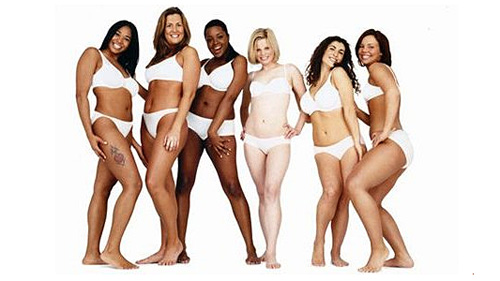
People who know me personally know that I yearn to move out of the United States. Why, they would ask? I tell them that I despise America for its futile arguments over controversial issues, its sudden attentiveness for the environment, and its exploitative use of media.
One day, I was picking up at book on the hold shelf in the library. As I rushed across the library to check it out (I forgot to feed the parking meter), a title stopped me in my tracks. It was called “Why We Hate Us: American Discontent in the New Millennium by Dick Meyer. I was surprised. I couldn’t believe there was a book about this. I found out later, every word Meyer wrote were my exact same thoughts, except with better wording.
Meyer explains that our discontent is fueled by bullshit, belligerence, and boorishness, which are brought on by phoniness and the revolution of technology. The more I read, the more my thoughts unraveled and the more cynical I became (as if I wasn’t cynical enough already). At the same time, I felt myself unraveling. I came to realize that Meyer was talking about me. I was shocked. I always thought I was part of the solution, but Meyer says differently. I am why we hate us.
Truthiness
I talk a lot of bullshit, but not a lot of people are able to spot it. I call it truthiness, a term coined by Stephen Colbert. Now in the Webster’s dictionary, truthiness is defined in two ways: 1) truth that comes from the gut, not books, and 2) the quality of preferring concepts of facts one wishes to be true, rather than concepts of facts known to be true. When truthinesses clash, it’s a pointless argument ready to happen.
I make you believe that natural and fair trade products are good for you and for the people on the other side of the world, despite the fact that natural doesn’t always mean the ingredients were obtained fairly or that fair trade is really that fair.
I disable you as a fan of a certain music artist just because I don’t like their music. I don’t have a legitimate reason to not like them, but I embellish my reason to make it sound reasonable just so I have something to say.
I just demonstrated Meyer’s theory that belligerence flows from bullshit. Meyer writes, “The idea of choosing goods and values individually, by taste and preference, is what truthiness is all about. It actually has a philosophic pedigree. It is called ‘emotivism,’ a term resurrected by MacIntyre from early nineteenth-century British philosophy. In After virtue, MacIntyre defines it this way: “emotivism is the doctrine that all evaluative judgments and, more specifically, all moral judgments are nothing but expressions of preference, expressions of attitude or feeling.” So in this view there is no difference between saying ‘the death penalty is wrong’ and ‘I don’t like the death penalty.’ ‘Gay marriage is immoral’ is just another way of saying ‘I don’t like gay marriage.’ Now you see why we are getting nowhere with issues of gay rights and abortion.
Belligerence
“The need to make others wrong has turned into an addiction,” writes Meyers. That is very true…for me. As a former debater, I am unable to let go of my debating habit. To win a round, all I have to do is prove to the judge that the other party wrong.
Another habit obtained from debating, is producing arguments that are not necessarily the view of one’s own beliefs. I have also brought this habit into my world outside of debate. I can, on the spot, make up a plausible explanation for (almost) anything to provoke an argument; because I am convinced I can prove you wrong 90% of the time.
We are faced with belligerence all the time, especially on TV. Do you know what is common in all those reality shows? Drama. Contestants are always fighting with each other. Meyer compares reality TV to voyeurism, “part of the allure of reality TV is the voyeuristic thrill of watching real people fight and melt down—and the performers deliver. Game shows goad contestants into catfights. We enjoy watching the naked aggression of exhibitionists. We find it entertaining, even soothing.” Remember the Jerry Springer Show and all the fights hunky Steve had to break up?
Balkinization
This is, in some way and not, where I offend America the most. Meyer defines cultural Balkinization as “exaggerated attachments to a point of view or single issue.” People place identifiers on themselves every day. I’ll point myself out. I call myself a tennis player, a swimmer, and a gymnast. In reality, I can’t serve, it takes me 32 seconds to swim 50 meters, and I can’t do the splits.
Identifiers are very common these days. Meyer takes it to the next level to say that “people have an increased need to display badges of their own personal ‘Balkin states’ to the world with the whole branding concept in fashion and marketing” which I am guilty of.
Balkinization leads to a type of phoniness, called artificiality. I never noticed my artificiality until I walked into a certain Wal-mart. Every time I walk into that certain Wal-mart, I get jeers and stares. It’s a little uncomforting. Then I realize it might be what I am wearing and carrying into the store—a Coach purse and shoes, Armani Exchange t-shirt.
Why We Hate Us brought my life into perspective. Usually with these kinds of epiphany, I find myself trying to minimize these traits. However, I feel I am unable to make myself more authentic or stop from starting an argument when opportunity arises. Meyer offers a remedy to make us belittle our hatefulness. To sum it up in one sentence, he says “strive to make thoughtful choices using a sound moral temperament.” I guess acknowledging my hatefulness is a start.


